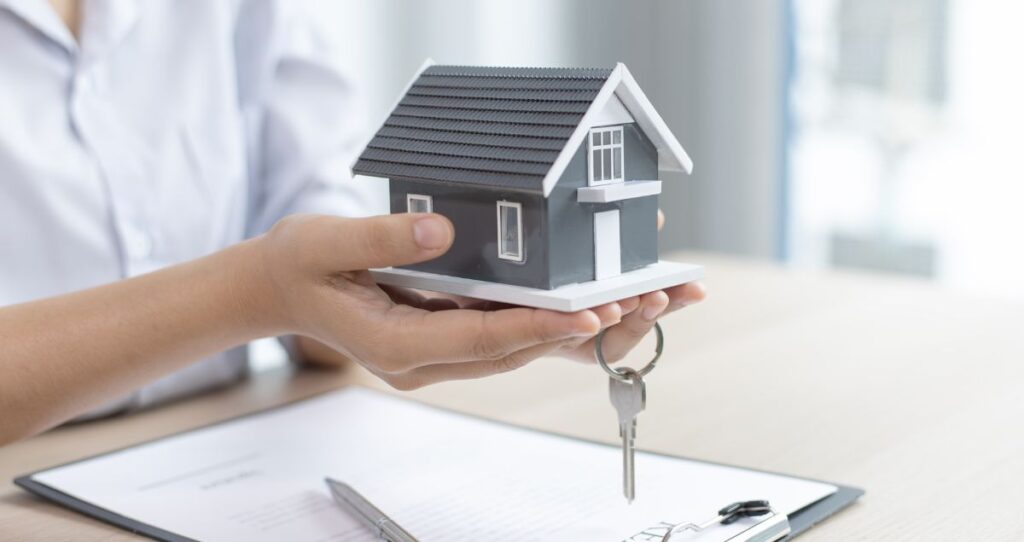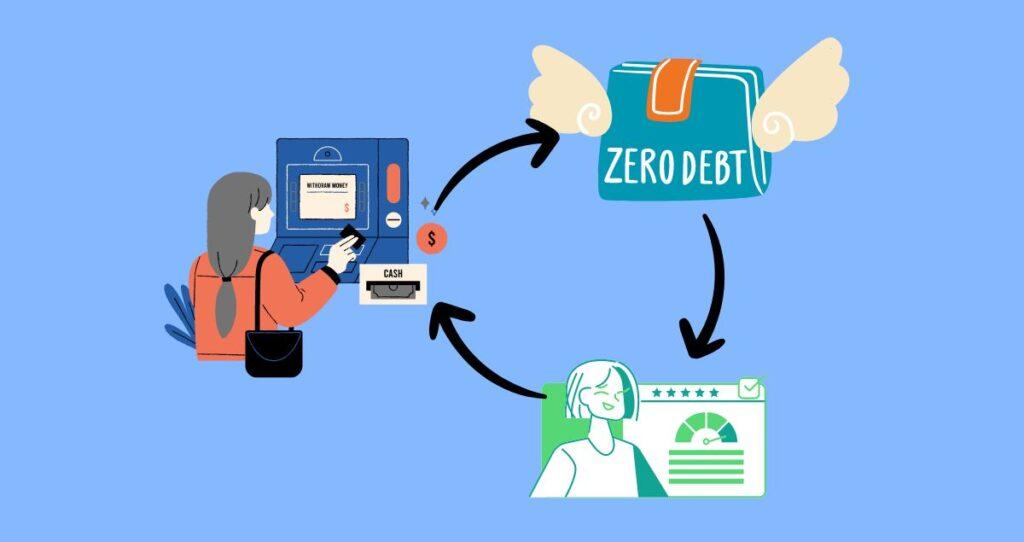You probably heard that refinancing your mortgage or loan will save you money. Although this is true, refinancing your loan might not be right for you. In order to take advantage of mortgage refinance, you need to refinance at the right time and for the right reason. Learn when it makes sense to refinance your mortgage and what you should expect after the refinance process.
What is a mortgage refinance?
The mortgage refinance is a process of replacing your current mortgage with another mortgage that has favorable terms. Although mortgage refinances comes with a lot of benefits, it does not come for free. Just like any other mortgage application, you should expect to cover refinance closing fees. These fees include appraisal fees, title insurance fees, attorney fees, etc. Usually, the mortgage refinances fees range between 2% to 6% of the total cost of the property at the time of the refinancing process.
Since the refinancing process costs money, it would make sense to refinance a mortgage when the benefits outweigh the total cost of refinancing. The following are the top 4 reasons refinancing a mortgage will be a good idea.
You might also like Step-by-step on how to refinance a mortgage.
1. When you are taking advantage of lower interest rates
In a market where interest rates are falling, it makes sense to refinance a mortgage. If you bought a home when interest rates were higher, you can easily refinance your mortgage after rates have gone lower significantly. For example, if you locked in a 7% interest rate on the mortgage and rates went to 3.5%, it would be a good financial option to refinance your mortgage. You might not qualify for a 3.5% rate, but you can easily bring your rates around that value given your income and the health of your credit profile.
Most homebuyers qualify for 30-year or 20-year fixed-rate mortgages(FRMs). The higher you go in mortgage terms, the more the house will cost you. Long-term loans and mortgages mean that the interest charges you pay will also be higher. By refinancing your mortgage and lowering your interest rates, you end up lowering your monthly payments and the total cost of your home. Lower monthly payments also mean that you can pay a little extra to become debt free faster.
In case you have an adjustable-rate mortgage(ARM) and market rates are increasing, it will make sense to move from an ARM to an FRM. This is because ARM rates change based on market rates. When rates are going higher, the interest you pay on the mortgage will also go higher to reflect these changes. By refinancing your adjustable rate mortgage to a fixed rate mortgage, your rates will not increase even if market rates go higher.
2. Your income went higher
People with low incomes qualify for longer terms loans. This is because short-term mortgages and loans such as 10-year or 15-year fixed-rate mortgages come with higher monthly payments. Unless you have a secure and high-paying job, you will not qualify for shorter-term loans. If you have been qualified for a 30 year-fixed rate due to low income, you might need to refinance your mortgage for a lower term such as a 15-year term after having a significant increase in your income. A short-term mortgage will allow you to pay off the house much faster and save you money in the process.
Some mortgage providers also charge you a pre-payment penalty when you pay more than you are supposed to. This rule does impact you when you have a meager income. Well, you would not make extra payments because you don’t have extra cash laying around. After getting a significant increase in your income, however, the pre-payment penalty can be a great barrier to paying off your house faster.
If you have struck rich and want to get out of debt faster, consider refinancing your mortgage and choose a lender with no prepayment penalty. This way you can pay as much as you want every month without paying a fee.
3. It makes sense to refinance a mortgage when you are getting equity from your home
If you have been paying off your house for a while, you probably built enough equity. This is because a portion of your monthly payment covers the interest rate and the other portion covers the principal which helps you build equity in the house.
Having equity in your home means that you can take it out anytime you want to cover some of your expenses. For example, let’s say that you want to renovate your home. Instead of going to the bank for a home renovation loan, you can have a cash-out refinance. With this refinance, you will get the equity you need from your home without applying for a brand-new loan.
Other ways you can unlock equity in your home are through Home equity loans and home equity lines of credit (HELOCs).
4. After improving your credit significantly
One of the most important factors lenders look for when evaluating your creditworthiness is your credit history. How long you have been using credit accounts and how good you are as a borrower helps lenders determine if you qualify for loans and the interest rate you qualify for. Besides your credit history, your credit score comes in handy when applying for credits.
The lower your credit score, the higher the interest rate you will pay. For example, a person with a 620 credit score will not pay the same interest rate as someone with an 800 score on a conventional mortgage. People with 800 credit scores are considered superprime borrowers, and therefore, qualify for the lowest interest rate possible. Those with lower scores such as 620 pay higher rates because they are riskier.
If your credit score was in the lower range for mortgages such as 620, you can refinance your mortgage after making improvements to your credit score. Even if the interest rates stayed the same from the time you bought the house, you will qualify for a lower interest rate due to an improved credit profile.
Things to know before refinancing a mortgage
- Know the equity in your house. Before you refinance your mortgage, you will first need to know the equity in the house. For example, many lenders require that you keep at least 20% equity in your house. So, if you are going for a cash-out refinance, you will need to have way more than 20% equity in the house.
- Know your break-even value. When you refinance your house, you encounter closing costs. These costs can range between 2%-6% of the cost of your home. Unless the benefits you get from a refinance outweigh the cost of refinancing, it will not make sense to refinance your mortgage. For example, if the total cost of refinancing is $5,000 and you are saving $200 every month, it will take you 2.5 years to make your money back. Keep these costs in mind before you refinance your house.
- Know your latest credit score. When you refinance a mortgage, the lender will check your credit score. At the end of the day, you are replacing your old mortgage with a new one. The new lenders must know how risky it is to lend you money by checking your credit score. If you don’t have a good credit score, make sure that you improve your score first. A good credit score will help you qualify for a lower interest rate.
- Estimate the cost of refinancing. Your mortgage refinance closing costs must be paid off. Make sure that you estimate these costs and have some cash ready to cover them.
- Remember Private Mortgage Insurance(PMI). You might be required to purchase a PMI if you want to refinance a mortgage with less than 20% equity in your house.
The bottom line
Although refinancing your home is a good strategy that can help you pay lower your interest rates, lower your monthly payments, pay off the house faster, or get equity from your home; this strategy might not be right for you. You still need to balance the cost of refinancing with the benefits. It will only make sense to refinance your mortgage when your benefits outweigh the costs of refinancing. Do your homework first, and make an educated decision before you refinance your mortgage.









